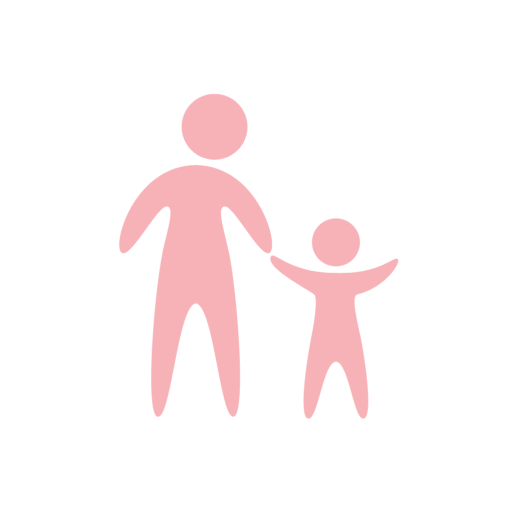Emotional Growth A Parent Guide to Nurturing Feelings and Strength
Emotional Growth is a core part of childhood development and a lifelong skill for adults as well. As a parent you play a vital role in guiding your child to understand, express and manage feelings in healthy ways. This guide explores practical strategies and simple daily habits that support Emotional Growth for children and families. It also points you to resources and ideas you can use at home to build stronger emotional skills and deeper connections.
Why Emotional Growth Matters
Emotional Growth helps children learn how to identify feelings name them and respond with care. When kids develop emotional skills they gain better social ability and improved problem solving. They are less likely to act out and more likely to seek help when they need it. Emotional Growth influences school success friendships and long term mental health. Parents who focus on this area offer a gift that follows their child into adult life.
Core Components of Emotional Growth
There are key areas that support steady Emotional Growth. Awareness is the ability to notice feelings in body and mind. Labeling is naming emotions using clear words. Regulation is learning simple tools to calm down or build energy as needed. Empathy is the ability to notice feelings in others and respond with care. Finally resilience is the capacity to recover from setbacks and keep trying. Focusing on these components helps you design moments that teach and reinforce emotional skill.
Daily Routines That Build Emotional Skills
Small consistent moments add up to big change. Start with routines that make emotions visible and manageable. Try a morning check in where each family member shares how they feel using a few simple words. Use a calm down corner with cozy items and short breathing exercises for tense moments. At dinner share one thing that felt good and one challenge from the day. These rituals create language and practice for feelings and deepen family bonds.
For parents seeking more structured guidance there are resources with exercises and short programs that teach focus and emotional control in a step by step way. A recommended resource for focus and mindful skill practice is FocusMindFlow.com which offers tools that pair well with parenting routines and exercises.
How to Talk About Feelings Without Fear
Open honest conversation is crucial for Emotional Growth. Use simple open ended questions. Avoid rushing to fix every upset moment. When you label a feeling you give a child a map for what to do next. For example say It looks like you feel angry tell me about that or I see tears would you like a hug or space. Reflect back what you hear and validate emotion without praising only calm behavior. This builds trust and teaches kids that feelings are safe to express.
Modeling Emotional Skills as a Parent
Children learn by watching how adults handle feelings. Show healthy coping and admit your own feelings in age appropriate ways. For instance say I am frustrated right now so I will take a deep breath then we can talk. When children see adults use healthy strategies they are more likely to copy them. Try narrating your process step by step so kids can learn the language and the sequence of skills.
Activities to Strengthen Emotional Awareness
Playful activities make practice fun. Use feeling cards to match faces to words. Do a feelings scavenger hunt in a book or on a walk. Make a feelings chart where each member places a token to show their mood each morning. Role play common social scenarios to practice responses. Keep sessions brief and consistent to maintain interest and reinforce learning.
Handling Big Emotions and Conflict
Big emotions are normal and they offer a chance to teach regulation and repair. When a child has a meltdown focus first on safety and calm. Use a soothing voice short sentences and physical comfort if wanted. Once calm talk about what happened and what can help next time. Teach repair language such as I am sorry I will try again or I need help figuring this out. Reinforcing repair helps rebuild relationships and teaches accountability.
Emotional Growth in Different Ages
Early childhood focuses on naming feelings and basic regulation. School age children can learn to plan strategies and practice empathy. Teenagers need guidance in complex emotion management and decision making while also getting space to grow their independence. Tailor your approach to age and personality. Offer simple tools for young kids and collaborative problem solving for older kids. Growth is paced by readiness not by pressure.
When to Seek Extra Support
Most emotional challenges can be improved with consistent parenting practices. However if a child shows prolonged sadness severe anxiety repeated withdrawal or aggressive behavior that disrupts daily life consider professional support. Therapists educators and pediatricians can offer assessment and targeted strategies. Parents who seek help model strength and resilience for their children which is an important lesson in itself.
Creating a Family Culture of Emotional Growth
Make Emotional Growth a core family value. Celebrate effort more than perfect outcomes. Share stories in which feelings were handled well and notice small wins. Encourage curiosity about feelings and welcome questions. Build rituals that reinforce connection like weekly family time or a feelings journal that different people update. The goal is a warm predictable environment where emotional skill is practiced and appreciated.
Where to Learn More and Stay Inspired
Parenting is a journey and fresh ideas keep practice lively. For a variety of tips and parenting ideas visit coolparentingtips.com where you can find guides tools and quick activities that support Emotional Growth at home. Combining practical parenting tips with mindful focus practice helps children gain steady emotional strength.
Final Thoughts on Emotional Growth
Emotional Growth is not an outcome that happens once. It is a living process shaped by daily interactions routines role modeling and the safe presence of caring adults. As a parent your consistent attention to feelings and to small teaching moments builds skills that your child will use for life. Use clear language validate feelings model healthy coping and create routines that turn skill practice into natural family life. With time patience and kindness you will see steady progress and deeper connection in your family.
Start small pick one routine to try this week and notice how it influences mood and connection. Emotional Growth is a journey worth taking together.















